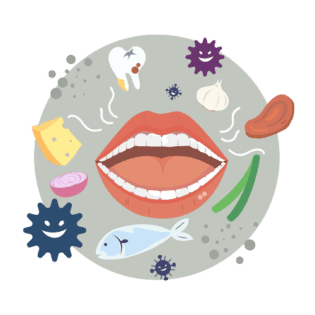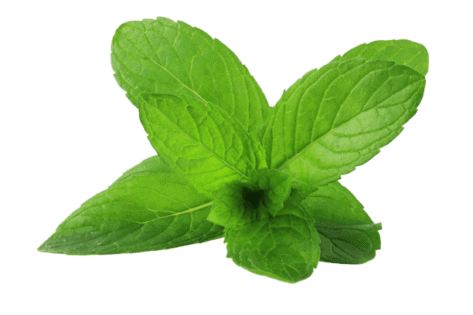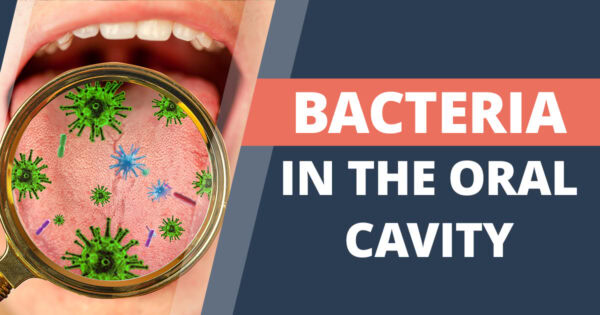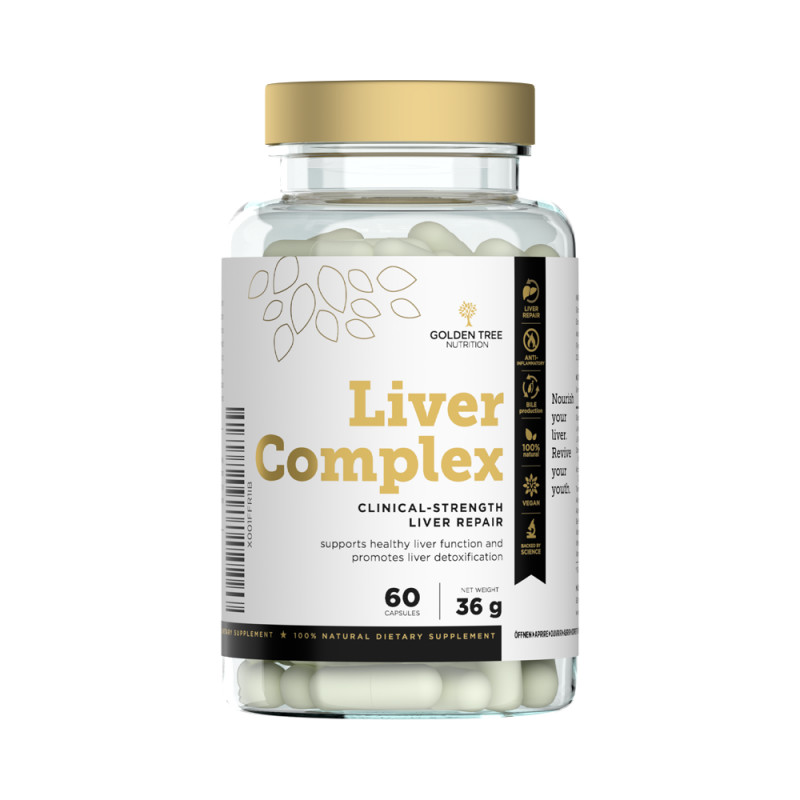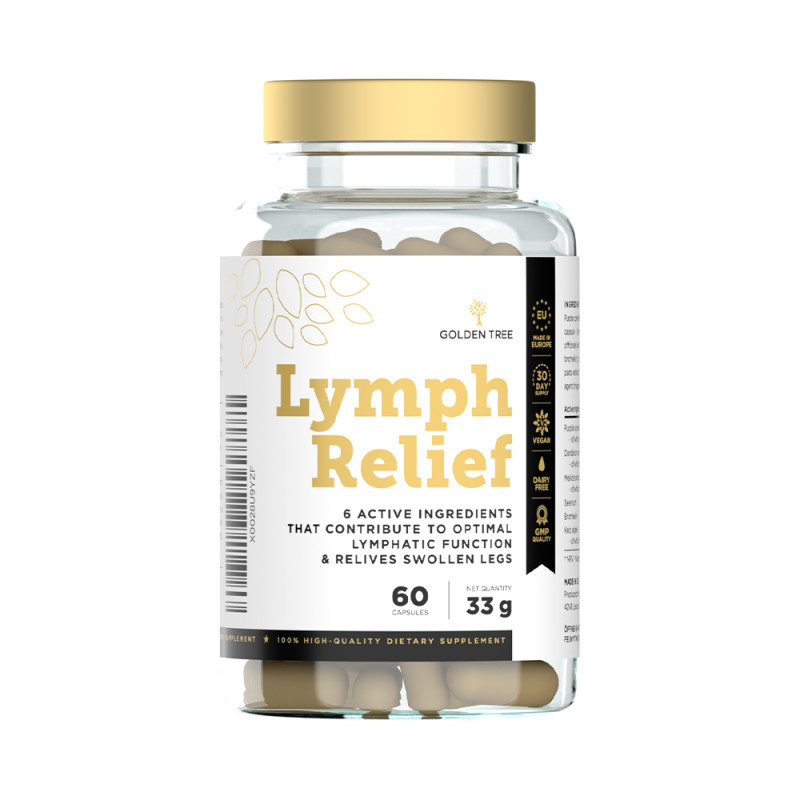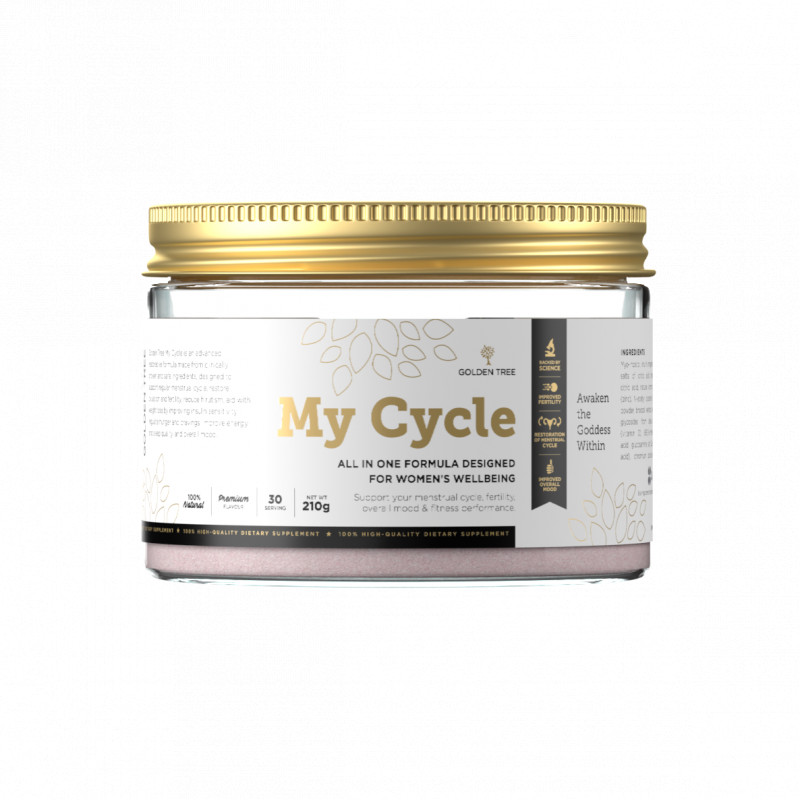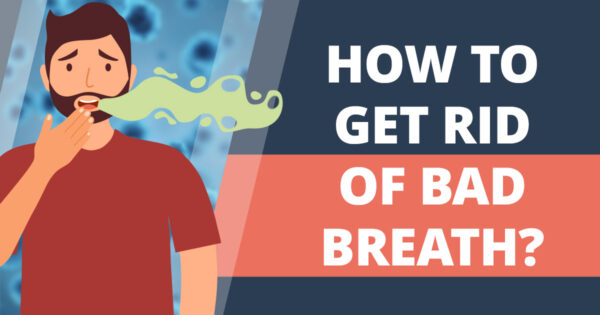How to get rid of bad breath for good?
Do you think you're taking good care of your oral hygiene, but still have bad breath?
Fortunately, you're not the only one with this problem. Half of the world's population suffers from bad breath.The fact is that everyone encounters this problem at least occasionally.
However, you probably agree that bad breath is no joke and can have a negative impact on your self-esteem.
If you have bad breath in the morning, this is of course completely normal and goes away when you brush your teeth.
Oral hygiene is therefore always first on the list of things to do to prevent bad breath!
Unfortunately, sometimes regular brushing and flossing are not enough. In some cases, even if you have a good oral hygiene routine, you still get bad breath, and this can lead to a lot of embarrassment.
It is important to remember that bad breath can also be caused by certain health problems.
Why is bad breath or halitosis such a common problem and what can you do to get rid of it?Find out the answer below, as well as lots of information about what bad breath can tell you about your health.
TABLE OF CONTENTS:- THE 6 MAIN REASONS FOR BAD BREATH
- WHAT DOES YOUR BREATH REVEAL ABOUT YOUR HEALTH?
- 3 STEPS TO BETTER BREATH
THE 6 MAIN REASONS FOR BAD BREATH
"I bet they don't brush their teeth!" is probably your first thought when you meet a person with bad breath.
However, you should be aware that there are many different causes for this condition, so don't be too quick to judge.
Although inadequate oral hygiene is still the most common cause, halitosis can occur due to disease or even due to certain medications.
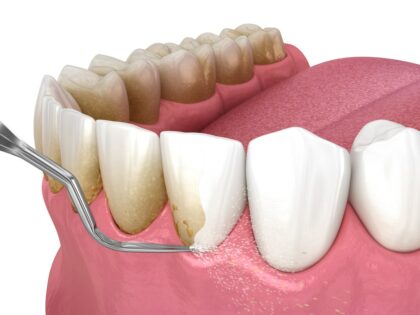 Here's a look at the 6 main causes of bad breath.
Here's a look at the 6 main causes of bad breath.
POOR ORAL HYGIENE
The most common cause of bad breath is poor oral hygiene. If you don't look after your teeth properly, you can develop cavities or a number of gum diseases that can affect your breath. Also, irregular brushing can cause food particles to remain in the mouth, resulting in plaque and bad breath. One of the most common causes is, for example, an infection of the gums, or gingivitis.CERTAIN FOODS
Some foods with a strong smell and taste, such as garlic, onions, fish, spicy foods, etc., can also cause bad breath.SMOKING
Smoking is one of the main causes of bad breath. Regular smoking even increases the risk of developing certain diseases of the teeth and gums.DRY MOUTH
Even a dry mouth can cause bad breath! This is because a lack of saliva causes bacteria to multiply in the oral cavity. This is why, for example, people who sleep with their mouths open often have problems with bad breath.
DISEASES
Bad breath can also be caused by certain diseases not directly related to the oral cavity, such as diabetes or certain stomach problems, e.g. heartburn. Bad breath in children is also often caused by respiratory diseases or nasal problems.CERTAIN MEDICINES
Some medicines reduce saliva production, which can lead to bad breath. The breakdown of certain medicines, such as medicines containing nitrates, chemotherapy drugs and some sedatives, can also contribute to bad breath.
WHAT DOES YOUR BREATH REVEAL ABOUT YOUR HEALTH?
Interestingly, bad breath can point to a number of health problems.
For example, ammonia breath can indicate kidney problems, while acidic breath can indicate digestive problems.
If halitosis persists even after brushing your teeth thoroughly, it may be a sign of an infection in the oral cavity.
Read more about the different types of halitosis and their causes below.
BAD BREATH FROM THE STOMACH
Bad breath coming from the stomach can be caused by acid reflux or the presence of Helicobacter pylori in the stomach. This type of halitosis is often described as an unpleasant, sour smell coming from the digestive tract. Sour breath can be caused by acid reflux, but it can also indicate other stomach, digestive or colon problems.BAD BREATH FROM THE THROAT
Bad breath from the throat comes from deeper in the gullet and can be linked to infections, inflammation or other problems. A child's bad breath may be due to a nasal problem or a bacterial throat infection. It can also be caused by poor oral hygiene or problems with the digestive system.BAD BREATH AFTER BRUSHING YOUR TEETH
BAD BREATH AFTER EATING
A garlicky odour is usually caused by eating foods with a strong smell, such as garlic. This smell can linger in the mouth for a long time and is unfortunately quite difficult to get rid of. A fishy smell can indicate kidney problems. It may also be associated with a metabolic disorder called trimethylaminuria. An oniony odour usually occurs after eating onions and in most cases there is no cause for alarm. The smell of rotten eggs is often caused by the presence of bacteria in the mouth or digestive tract produced by sulphur compounds.BAD BREATH DUE TO VARIOUS DISEASES OR MEDICINES
An acetone odour is common in diabetes. It is caused by slowed carbohydrate metabolism, when the body starts using fat for fuel. A naphthalene-like odour smells like chemicals and can be caused by metabolic disorders or the use of certain medicines.
Ammonia-smelling breath can be a sign of problems with protein metabolism or a sign of impaired kidney function.
A foul smelling stool or faecal odour can be associated with various infections of the digestive system.
A naphthalene-like odour smells like chemicals and can be caused by metabolic disorders or the use of certain medicines.
Ammonia-smelling breath can be a sign of problems with protein metabolism or a sign of impaired kidney function.
A foul smelling stool or faecal odour can be associated with various infections of the digestive system.
If you have been experiencing any of the above types of halitosis for a long time, we suggest you see your dentist as soon as possible.
3 STEPS TO BETTER BREATH
There are various methods that can improve your condition which you can easily introduce into your daily routine.
For example, a quick solution is ensuring you drink enough water to prevent dry mouth.
Of course, good oral hygiene is also key, so brush your teeth at least twice a day!
Below, we disclose how herbs from your home garden can help with bad breath and what other solutions are available.
SOLUTIONS FROM YOUR GARDEN
Wondering if there's a food that can help you have better breath? The answer is yes!
You can help yourself with many natural solutions that you can find in your own garden:
- Parsley Chewing fresh parsley after a meal can help eliminate bad smells and tastes in the mouth. Parsley also has anti-inflammatory properties that maintain gum health.
- Mint Mint leaves have a refreshing effect. You can chew them or make a refreshing mint mouthwash.
- Cardamom This aromatic spice can help prevent bad breath by chewing it, making tea from it or adding it to various dishes.
- Apples Because they are rich in fibre, they can help to remove bacteria and maintain oral hygiene.
- Carrots As it requires a lot of chewing, it can help clean teeth and remove food debris.
- Plants with antimicrobial properties Some plants, such as sage and thyme, have natural antimicrobial properties. You can use them to make tea or use them as an ingredient when cooking.
GOOD ORAL HYGIENE
Regular oral hygiene is, of course, also key to preventing bad breath.
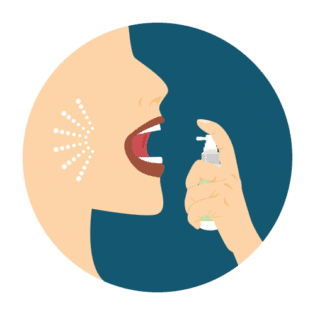
Regular brushing and flossing can help you avoid many dental problems and even eliminate bad breath.
There are also a few gadgets to help you stay fresh:
- Mouth spray There are a number of spray fresheners that are very handy for refreshing your mouth and improving bad breath.
- Breath freshener tablets There is also help in the form of tablets or capsules that you take several times a day to prevent bad breath.
- Home remedies to prevent bad breath If you mix baking soda with water and use the solution instead of mouthwash, you can significantly improve your breath. Rinsing your mouth with salt water also works.
And of course, regular visits to the dentist or dental hygienist are a must to maintain a healthy mouth.
Here's what else you can do to improve your breath...
PROBIOTIC POWDER
Bad breath is also often linked to an imbalance of bacteria in the mouth or digestive system.
Probiotic powders contain beneficial bacteria that are naturally present in the body.
These bacteria play an important role in maintaining the balance of microorganisms in the digestive tract and other parts of the body.
Probiotic powders can help with bad breath in several ways:
- They regulate micro-organisms in the mouth,
They prevent the growth of bacteria in the digestive tract; and
They reduce digestive problems.
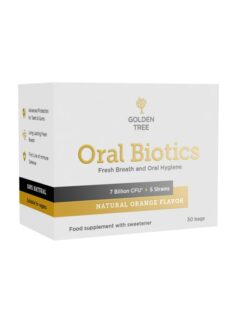 We have named this special solution Golden Tree Oral Biotics, and it is unique among oral probiotics.
Golden Tree Oral Biotics is a 4-in-1 solution:
We have named this special solution Golden Tree Oral Biotics, and it is unique among oral probiotics.
Golden Tree Oral Biotics is a 4-in-1 solution:
- Reduces the chance of tooth decay
- Helps produce enzymes that prevent the formation of plaque
- Fights harmful bacteria that cause gingivitis
- Produces antimicrobial peptides that actively target harmful bacteria associated with bad breath
Its wide-ranging effects are due to the following five strains:
- Streptococcus salivarius (BLIS K12),
- Streptococcus salivarius (BLIS M18),
- Bifidobacterium lactis (Bl-04),
- Lactobacillus paracasei (Lpc-37®) and
- Lactobacillus reuteri.
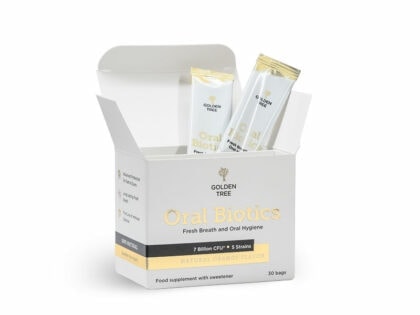
This complex of strains combines 7 billion good bacteria that will effectively protect you against:
- Dental plaque
- Gingivitis
- Tartar
- Tooth decay
- Bad breath
We hope you'll try this fantastic solution soon and get back to us with positive feedback, as we're sure you'll be surprised by the results.

